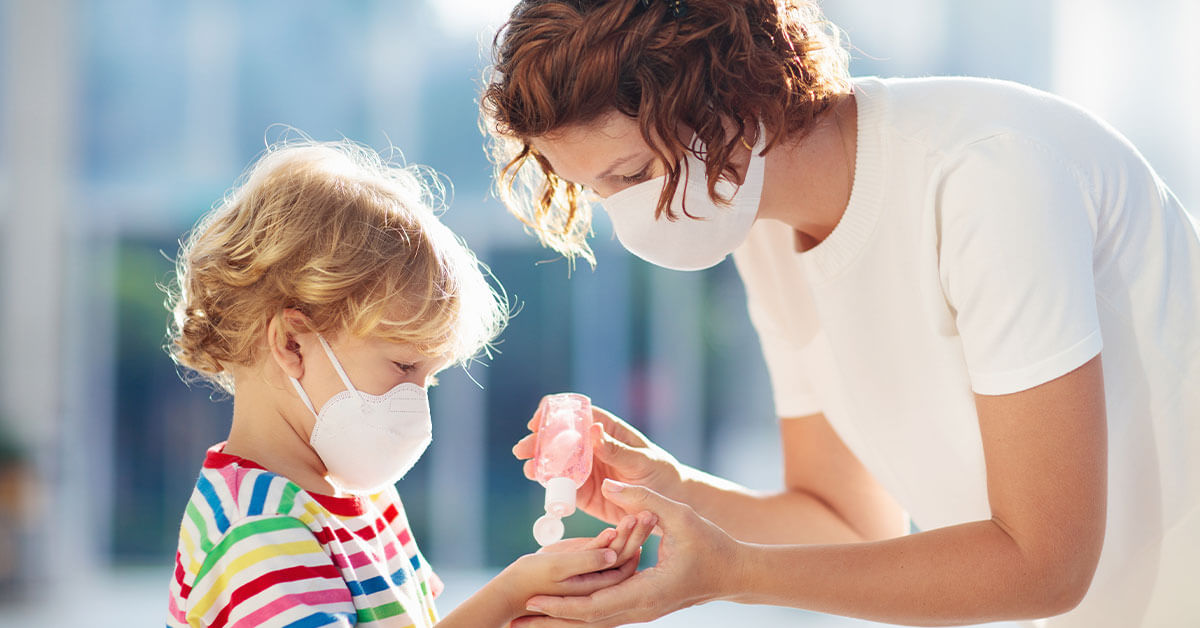As we all know, CDC recommends washing hands with soap and water for 20 seconds, whenever possible, because handwashing reduces ALL types of germs on hands. If soap and water are not available, using a hand sanitizer with at least 60% alcohol can help avoid spreading germs. However, it is important to know that hand sanitizers do not eliminate all types of germs, and soap and water are more effective than hand sanitizers.
There are certain kinds of disease-causing germs like Cryptosporidium, norovirus, and Clostridium difficile that are much better removed by soap and water than by any sanitizer. There is also the issue of how much hand sanitizer people use; studies show that people usually do not use a large enough volume of the sanitizer or may wipe it off before it has dried. Both of these practices decrease the effectiveness of sanitizers.
Also, not all hand sanitizers are made alike. Those with an alcohol concentration between 60–95% are more effective at killing germs than those with a lower alcohol concentration or non-alcohol-based hand sanitizers. Hand sanitizers without 60-95% alcohol may not work equally well for many types of germs and may only reduce the growth of germs rather than kill them.
If you ask a dermatologist, they will always tell you to wash your hands when possible. Use alcohol-based hand sanitizers only when washing is not an option.
Try to moisturize your hands regularly. Get creative and put a bottle of moisturizer next to every sink in the house and make it a habit to moisturize your hands right after washing them.
If you notice too much drying or irritation, rash, fissures, or bleeding on the skin of your hand, it is time to see a dermatologist. There are many types of “hand dermatitis/eczema,” and a dermatologist can help diagnose and treat your hands properly. Some patients develop a condition called Irritant Contact Dermatitis which, in the most basic terms, means using too much harsh chemicals have caused a rash. Others may have Allergic Contact Dermatitis, which is when you have an allergic reaction to a component of the soap or sanitizer. The worst cases of hand dermatitis are patients with Dyshidrotic Eczema, also known as Vesicular Hand Dermatitis. These patients develop blisters and suffer from a severe recurring rash on their hands and sometimes on their feet. A board-certified dermatologist can help determine the treatment options available for each of these diseases.
To learn more, we invite you to fill out our contact form or call JUVIVE Dermatology at (949) 432-7432 today to schedule a consultation. We will be happy to answer any questions you may have.


